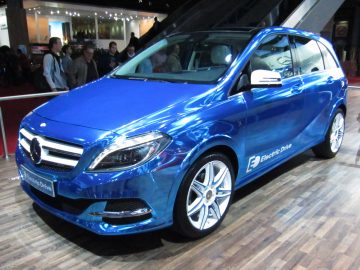
Wireless Charging Could Change the Automotive Landscape
ThomasNet
Mercedes-Benz recently announced plans to launch a wireless charging system for its electric cars next year. This non-standard option for select vehicles would require hardware changes to the car, but provide considerable convenience for the driver.
Instead of investing $500 to $1,000 for a specialty charging station in your garage, this inductive system would work the same way that wireless charging pads are used with smartphones, but at much higher power levels. A pad would be placed on the floor of the garage or driveway, which transmits power to a receiver plate mounted on the underside of the vehicle. As you drive into range of the pad, indicators on the car’s display will guide the driver into position for the most efficient charging.
Mercedes has been working with BMW and Qualcomm in developing what company officials describe as a relatively expensive technology. Typically, spending more on a power charging option would translate to a gain in charging speed. In the case of inductive charging, which will be an expensive add-on, charging times will be longer.
The fastest chargers currently support up to 11 kW, but the inductive model will be limited to 3.6 kW, meaning charging times will take almost three times longer. Audi is also reportedly exploring the technology, but Mercedes is the first to post a deadline.
One of the loudest criticisms of electric vehicles is the range of travel on single charge, as finding places to plug-in can still be a challenge. The development of drive-on pads that could help boost electric vehicle power would seemingly help attack this concern. Although charging times might take longer, and the initial investment would be higher, a parking lot would essentially become an electric vehicle hotspot.
